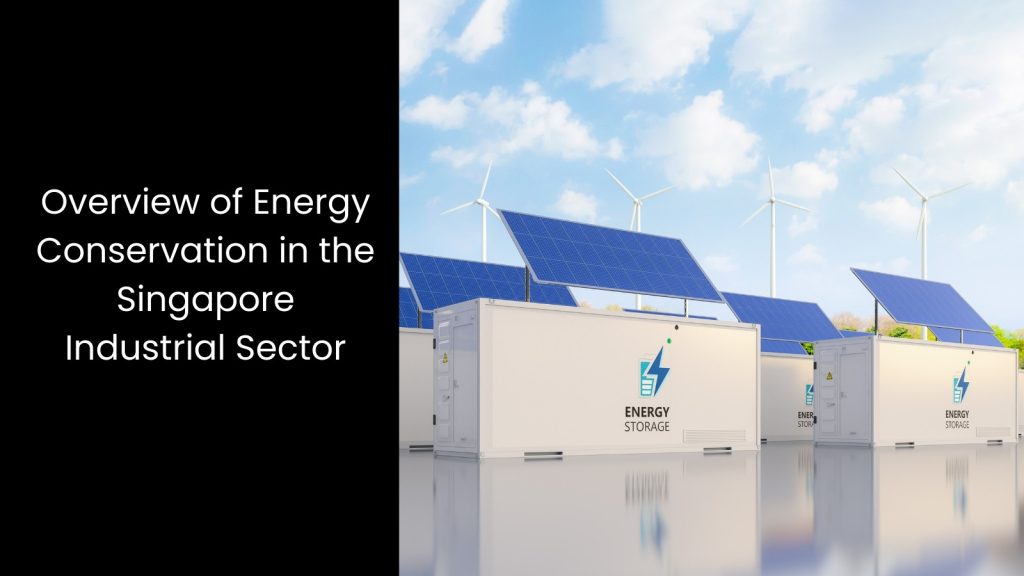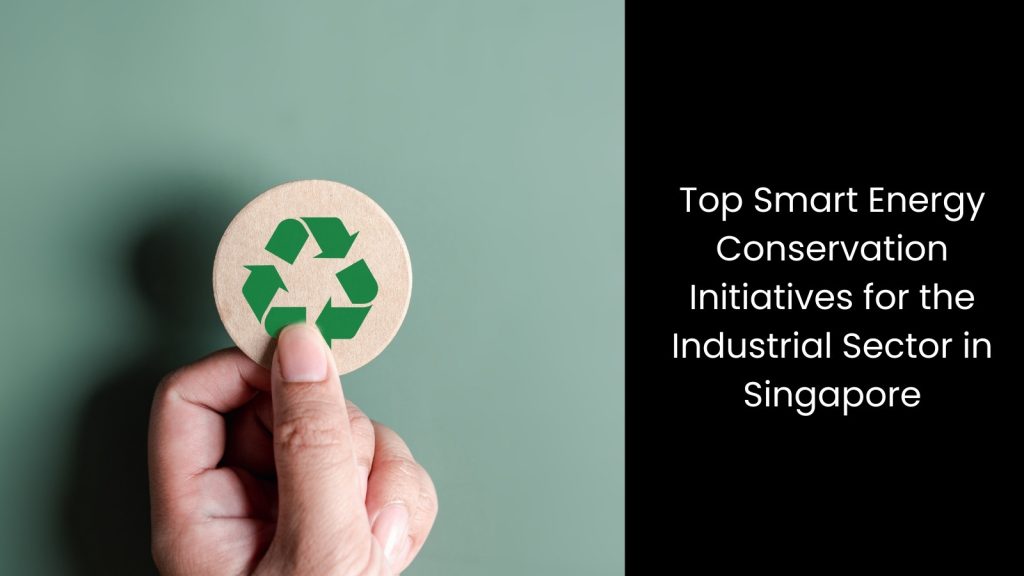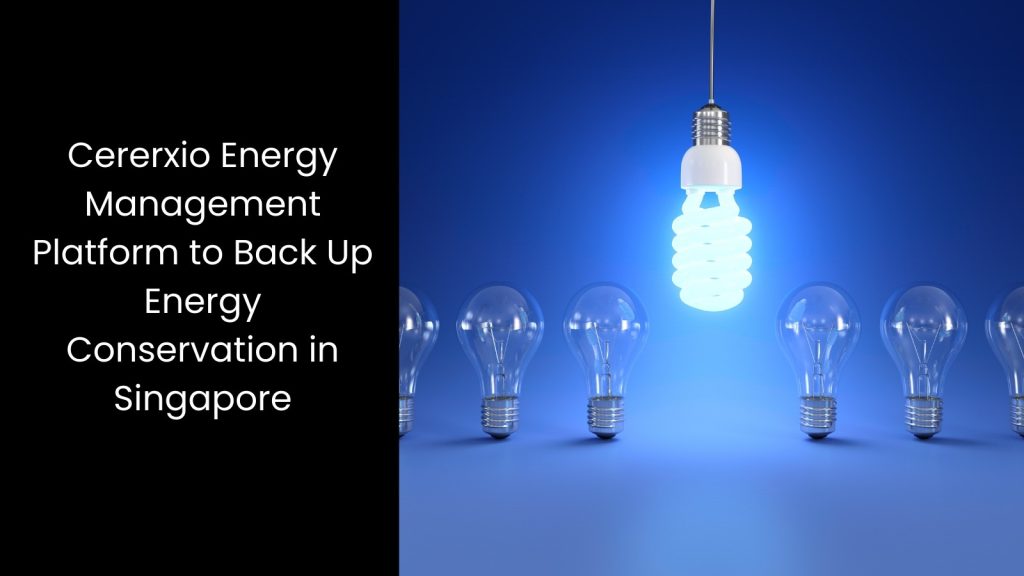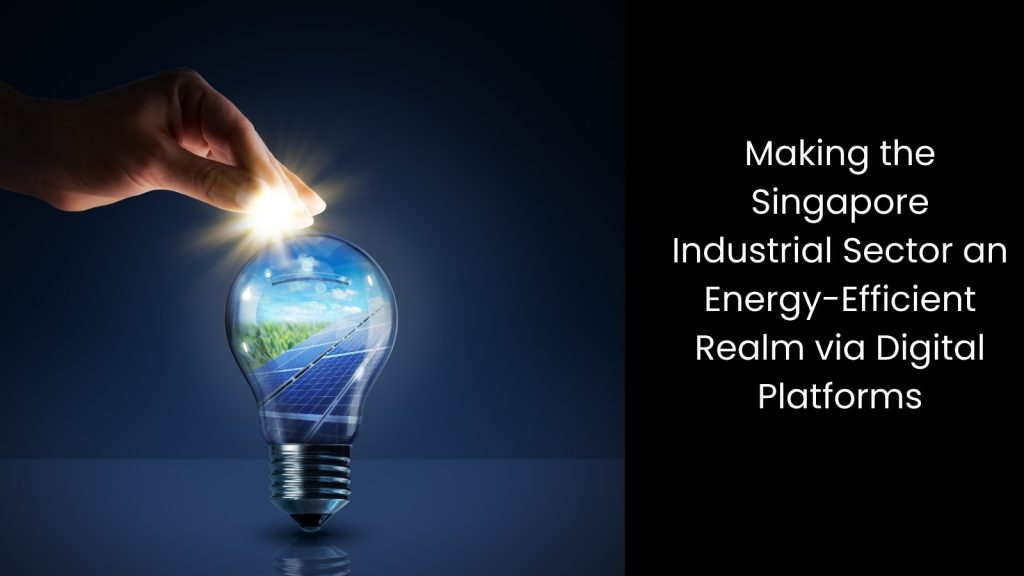In this article, we will explore a few of the most convenient and innovative ways you can save energy in the industrial sector in Singapore.
We will know
- Overview of Energy Conservation in the Singapore Industrial Sector
- Top Smart Energy Conservation Initiatives for the Industrial Sector in Singapore
- Cerexio Energy Management Platform to Back Up Energy Conservation in Singapore
- Making the Singapore Industrial Sector an Energy-Efficient Realm via Digital Platforms
Overview of Energy Conservation in the Singapore Industrial Sector

- Energy conservation in Singapore’s industrial sector comes to the centre of attention in the nation’s efforts to combat climate change and reduce greenhouse gas emissions.
- The government emphasises reducing reliance on carbon-intensive fuels, transitioning from fuel oil to natural gas, which now comprises over 95% of the electricity generation fuel mix due to its lower carbon content. However, achieving further emission reductions presents challenges, and this will surely highlight the importance of improving energy efficiency as a primary focus.
- Singapore adopts a whole-of-government approach to enhance energy efficiency across various sectors, recognising that the industrial sector is the largest consumer of energy. This presents significant opportunities for savings through effective energy management. Not to mention that improved energy management minimises waste, lowers energy costs, and contributes positively to the bottom line of companies.
- In order to back up this effort, the Energy Conservation Act (ECA), enacted in June 2012, introduced mandatory energy management practices to improve attention on energy use and elevate companies that struggle with energy management. In 2017, this further strengthened energy management practices as part of Singapore’s commitment to the Paris Agreement.
- These improvements include strict measurement and reporting of greenhouse gas emissions, mandatory implementation of energy management systems, and regular assessments of energy efficiency opportunities. Additionally, the introduction of Minimum Energy Performance Standards (MEPS) aims to phase out inefficient industrial equipment, driving the market towards more efficient models.
Top Smart Energy Conservation Initiatives for the Industrial Sector in Singapore

Optimising Production Schedules
As the latter adjust production schedules to minimise energy use during peak demand periods and take advantage of off-peak energy rates, industries can significantly lower their energy costs while enhancing overall efficiency. This strategy not only reduces the burden on the power grid but also creates an energy-efficient environment.
Manufacturers can identify peak periods, which typically see heightened electricity demand, and shift energy-intensive operations to times when energy rates drop. Such a strategic approach ensures that businesses operate within a framework that emphasises the economic benefits of energy conservation. For instance, industries that operate machinery during off-peak hours can leverage lower energy costs, thus directly impacting their operational budgets. This practice of optimising production schedules highlights multiple ways to save electricity by synchronising manufacturing activities with real-time energy pricing.
Additionally, manufacturers can use data analytics and forecasting tools to predict energy consumption trends, allowing them to make informed decisions about production timing. By actively managing their production schedules, companies not only contribute to a more stable energy grid but also enhance their competitive edge in the marketplace.
Implementing Energy Management Systems (EMS)
When industries in Singapore utilise advanced EMS to monitor energy usage in real-time, they can identify inefficiencies and optimise energy consumption effectively. EMS comes with sophisticated software and IoT technology to collect and analyse energy data across various operations. This will provide insights into consumption patterns and help businesses pinpoint areas where energy waste occurs. This mindful approach empowers organisations to take immediate action to rectify inefficiencies, thereby directly contributing to the principle of conservation of energy.
Moreover, EMS paves the way to create a culture of accountability, as employees can track their energy usage and contribute to collective efforts to reduce consumption. The ability to set benchmarks and monitor performance against them encourages continuous improvement, aligning operational practices with sustainability goals. This way, companies that adopt EMS not only experience significant economic benefits of energy conservation through reduced utility costs but also enhance their overall productivity.
Upgrading to Energy-Efficient Equipment
When companies invest in energy-efficient appliances, they significantly reduce their energy consumption and save on costs. For example, replacing old machines with modern, energy-efficient alternatives can lead to impressive energy savings while maintaining or even increasing productivity. These energy-efficient appliances often use advanced technology to operate more effectively, allowing industries to do more with less energy.
Furthermore, businesses that upgrade their equipment can enhance their reputation as environmentally responsible, attracting customers who value sustainability. This shift not only benefits the bottom line by lowering energy bills but also aligns with national efforts to reduce carbon footprints and comply with regulations.
Conducting Regular Energy Audits
These audits help companies evaluate their energy use, identify inefficiencies, and highlight opportunities for savings. After assessing energy flows throughout the facility, businesses can pinpoint where they waste electricity and which processes consume the most power. This detailed analysis allows them to implement effective strategies to enhance energy efficiency.
Moreover, companies can adopt energy-efficient technologies and practices based on audit findings, such as upgrading equipment or modifying operational schedules. In the meantime, regular audits also establish a culture of accountability among employees, encouraging them to contribute ideas for ways to save electricity. Ultimately, these audits not only reduce energy costs but also promote sustainable practices that align with national energy conservation goals.
Employing Data Analytics
Since it allows analysing large sets of data related to energy consumption, industries can gain insights into their operational patterns and identify specific areas where they can improve efficiency. This process aligns with the law of conservation of energy, which states that energy cannot be created or destroyed but can only change forms.
When companies understand how to conserve energy, they can identify wasteful practices and implement targeted strategies to reduce their energy consumption.
Cererxio Energy Management Platform to Back Up Energy Conservation in Singapore

In the quest for sustainable energy management, the Cererxio Energy Management Platform acts as the ‘North Star’ for Singapore’s industries. Powered by Industry 4.0 capabilities, Cererxio employs advanced analytics and real-time data monitoring to optimise energy consumption, reduce waste, and enhance operational efficiency. Since our solution integrates smart technologies, it not only supports energy conservation efforts but also empowers every manufacturing company to make informed decisions that align with national sustainability goals, paving the way for a greener future.
Making the Singapore Industrial Sector an Energy-Efficient Realm via Digital Platforms

It is crystal clear that robust technologies play a major role in making Singapore’s industrial sector energy-efficient. By adopting these digital platforms, you can take meaningful steps toward a sustainable future. With the right approaches, a greener and smarter future easily comes your way.
